Bernd Löwe is the winner of the Alison Creed Award 2024. Congratulations!
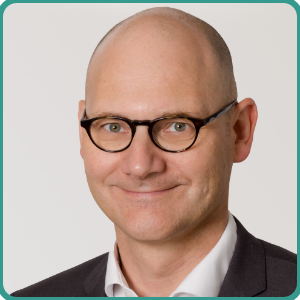
Professor Bernd Löwe, MD, is Full Professor and Head of the Department of Psychosomatic Medicine and Psychotherapy at the University Medical Center Hamburg-Eppendorf, Hamburg, Germany (UKE). Previously, he held clinical and research positions at the Medical University Hospitals in Heidelberg, Germany, and Indianapolis, USA. Dr Löwe is an internist, specialist in psychosomatic medicine and psychotherapy, psychologist and psychotherapist.
Dr Löwe has devoted his research to the interaction of somatic and psychological factors in various medical conditions¸ including gastroenterological, cardiac and infectious diseases as well as functional somatic syndromes and somatic symptom disorders. This work led to the research unit 5211 “SOMACROSS” on persistent somatic symptoms, funded by the German Research Foundation (DFG) since 2021, of which he is the spokesperson. Dr Löwe has also developed and validated a number of internationally used psychometric instruments, including self-report questionnaires for anxiety (GAD-7), somatic symptom severity (SSS-8), psychological distress associated with somatic symptoms (SSD-12), treatment expectations (TEX-Q) and many others. He has founded several local, national and international research groups, including EURONET-SOMA, a group of European scientists aiming to improve the diagnosis and treatment of persistent somatic symptoms.
He is the author of more than 400, mostly highly cited, scientific articles and book chapters (approx. 70,000 citations). He is on the editorial board of several scientific psychosomatic journals. In 2020 he was awarded the Wayne Katon Research Award of the Academy of Consultation Liaison Psychiatry (ACLP) for his current studies on psychopathology in the medically ill.
Interview with Professor Löwe, Alison Creed Award winner 2024
held in March 2024 by Natalie Uhlenbusch
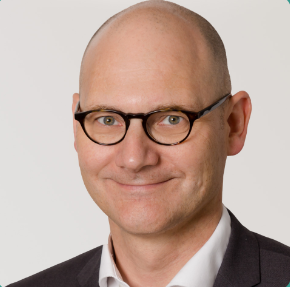
Bernd Löwe, MD
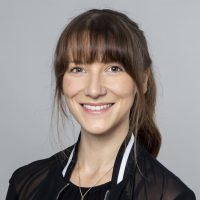
Natalie Uhlenbusch, PhD
Congratulations for winning the Alison Creed Award for your impressive achievements in the field of Psychosomatic Medicine/Consultation Liaison Psychiatry!
Thank you so much! I am delighted to receive this award, which is a great honor and recognition. However, the credit and thanks also go to my many colleagues in our Department of Psychosomatic Medicine and Psychotherapy at the University Medical Center Hamburg-Eppendorf and to many national and international colleagues with whom I have had the great opportunity to do this research together over many years.
You have an impressive career, with a degree in both medicine and psychology, you lived in the USA for a while, you completed training as a psychotherapist in both cognitive behavioral therapy and psychodynamic therapy, and have incredible achievements in research. Would you mind telling us a bit more about your background and professional journey? From your point of view, what are the most important milestones, what has particularly shaped you up to the point where you are now?
That is a big question for a short interview! What drives me most is the curiosity to learn, understand and ultimately develop ways to improve patient care. At first I struggled to decide which of the exciting areas of medicine I wanted to work in. Then I was lucky enough to get my first job at the Department of General Clinical Medicine and Psychosomatics at the Heidelberg University Hospital under Wolfgang Herzog, where I then spent nine years gaining very important experience. This also gave me the opportunity to learn both internal medicine and psychosomatic medicine and not have to choose between body and mind too early. While working in the emergency department and also in the general medical outpatient department, I realised how important the psyche is in many of the symptoms that patients came in with – e.g., fatigue, pain, or shortness of breath. I have always wanted to understand how psychological and somatic factors interact, and this guided me into research in psychosomatic medicine. To help identify mental disorders in medical patients, I then developed the German version of the Patient Health Questionnaire (PHQ), which led me to my first international collaborations in the USA, including my research year in the USA with Kurt Kroenke in Indianapolis. Kurt had a huge influence on me both scientifically and as a physician. I experienced how satisfying it is to collaborate in research at local, national and international levels. This great opportunity for international exchange and collaboration would not have been available to me outside of science. Of course, the invitation to become Professor of Psychosomatic Medicine and Psychotherapy in Hamburg was also a very important milestone on this path, although it was not so much my goal to achieve a high position, but to have the freedom to do things that I find scientifically and clinically interesting and worthwhile. I still believe that psychosomatic medicine and psychotherapy is such a great subject because it always involves dynamic interactions between body and mind, between medicine and psychology, and between different medical disciplines.
What made you decide to pursue a career in the field of psychosomatic medicine?
In addition to the aforementioned curiosity about the interactions between the body and the mind, there is simply no other field in which the individual’s own history, biography and personal development play such an important role as in psychosomatic medicine and psychotherapy. I find this extremely fascinating and it is what finally convinced me to choose this specialty, although I also consider other subjects such as internal medicine or neurology very appealing. And of course, I met a lot of nice people on my career path in our field of psychosomatic medicine, made friends and knew that I wanted to continue working here.
Having already achieved so much, do you have further visions for your own path?
The road to better understanding and treating patients never ends. I would very much like to continue to work on the development of psychosomatic medicine and psychotherapy, in particular to further improve the care of patients with persistent somatic symptoms internationally, and to introduce a more psychosomatic approach to medical fields where the somatic view is still very dominant. This is probably enough work for the next 50 years, and I suspect it will never be completely finished. However, I am very pleased that we have been able to establish several future-oriented groups in which we will continue to work together in the future, such as EURONET-SOMA, EAPM, SOMACROSS, and the ETUDE Training School. The resulting international collaboration strengthens us in our research or when submitting publications or applying for research grants.
Is there any advice for young researchers? What have you found helpful yourself at the beginning of your career?
Personally, it has helped that I have had different role models and mentors throughout my career. I have seen how they work, what their values are, and then I have adopted what is most appropriate for me. I think it is important to get involved in research projects that you are convinced are relevant, good and useful and to follow your curiosity and gut instincts. And of course: talk to lots of people, network internationally, enjoy science. Good research is always a teamwork!
Thank you for sharing all this with us! I would love to hear a bit more on your views regarding our field. Where do you see the future of Psychosomatic Medicine, both in research and clinical care?
Recent years have shown us the importance of psychological factors not only in mental disorders but also in many chronic diseases. We have understood, at least in part, what makes symptoms persist and how closely psychological, social and somatic risk factors are linked in the development of symptoms. From a therapeutic point of view, I believe that the potential of good patient-clinician interactions and expectation management will be more fully explored and integrated into medicine. In this respect, I see a very intensive development of the field of psychosomatic medicine and psychotherapy in the future, with many tasks in patient care and research! I think this is also because there is a huge potential for research and there are still relevant open research questions in our field.
And in an ideal world, which developments would you like to observe in the future?
When I think of an ideal world, I naturally think first and foremost of peace in different parts of the world, of overcoming the climate crisis, of sufficient food and security everywhere, and of global health. I believe that we, as internationally networked clinicians and scientists, can make our small contribution to this, including through our international professional societies such as the EAPM or through our meetings held in different parts of the world. My wish for our specialty is that patients worldwide will have access to evidence-based and scientifically sound psychosomatic medicine and psychotherapy when they need it.
Thank you very much for this interview, Professor Löwe.
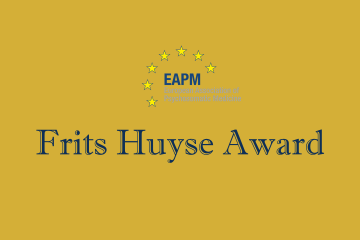
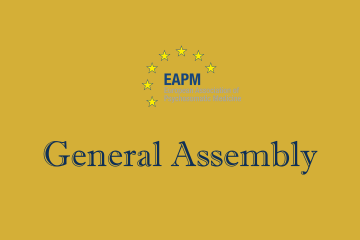
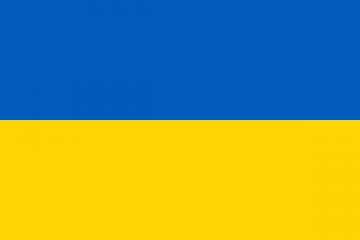
0 Comments